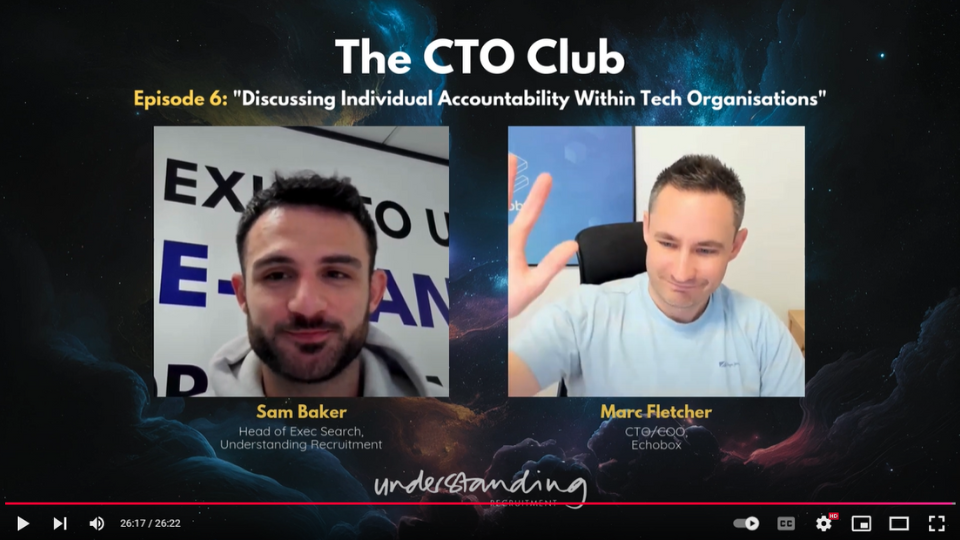In-House vs. Agency: The Best Software Development Strategy for Startups
11th February, 2025 10 minutes
Startups rely on software development teams to grow, adapt, and compete. Whether launching an MVP, expanding a product, or preparing for funding, the right developers are essential. The challenge is deciding how to build that capability.
Many startups start with agencies. It’s often deemed faster than hiring, provides access to experienced developers, and keeps costs flexible. But while outsourcing works in the early stages, it’s not always the right long-term strategy. As startups grow, high agency fees, limited control, and a lack of product ownership can slow progress.
So when should startups hire an internal development team instead of relying on an agency? And what does that transition look like?
This guide breaks down why many startups start with agencies, why they eventually shift to in-house teams, and how to make that move at the right time.
The Early Stage: Why Many Startups Rely on Software Development Agencies (At First)
For early-stage startups, building a software development team takes time, and most founders don’t have that luxury. Hiring in-house developers is a lengthy process, with the average time-to-hire for tech roles ranging from 29 to 43 days. In a fast-moving industry, that’s time startups can’t afford to lose. Many turn to software development agencies as a quick fix, offering ready-to-go developers, flexible contracts, and no long-term hiring commitments.
At this stage, startups are focused on:
- Building an MVP – Creating a minimum viable product to test the market before scaling.
- Proving product-market fit – Developing core features fast to secure funding or early customers.
- Attracting investment – Investors want to see a working product, not hiring delays.
Agencies offer an attractive solution:
- Immediate access to technical expertise – Startups working with blockchain, AI, fintech, or SaaS need specialist skills. Agencies have Rust developers, Java engineers, cloud computing specialists, and full-stack developers ready to go.
- Scalability without commitment – A team can be ramped up or down based on project needs.
- Lower short-term costs – No recruitment, salaries, or benefits, just a contract.
- Faster time to market – Agencies help launch an MVP quickly while an in-house team would still be in the hiring process.
For startups without the resources or structure to hire in-house, outsourcing feels like the best option. However, while agencies solve short-term problems, they can create long-term challenges as the business grows.
The Growth Phase: The Hidden Costs and Risks of Agencies
What works in the early stages doesn’t always scale. Agencies help startups launch quickly, but as the business grows, relying on external teams starts creating more problems than solutions. At this stage, startups need control, deeper product knowledge, and a software development team structure that supports long-term success.
Why Agencies Stop Being Cost-Effective
Agency fees seem manageable at first, but long-term reliance is expensive. Hourly rates, project-based retainers, and change requests all add up, often costing more than an in-house team. A startup that once paid for temporary software recruitment to build an MVP may find those costs unsustainable when development becomes ongoing.
With a full-time software development team, costs are more predictable, and developers are fully aligned with business goals instead of working on a contract basis.
The Problem with Product Ownership
Startups don’t just need developers; they need teams who understand the product inside out. Agencies deliver work, but they aren’t invested in long-term innovation. This creates challenges when:
- Scaling the product – External developers won’t have the same level of custom software solutions expertise as an in-house team.
- Iterating fast – Agencies work on multiple clients, which means startups often wait longer for updates or fixes.
- Building a long-term tech culture – Internal developers take ownership, collaborate with business teams, and build a software development team structure that aligns with growth.
Scaling Becomes a Challenge
As startups expand, agility is key. Full-stack development, Java, and ongoing maintenance require teams who can iterate and adapt fast. External developers juggle multiple clients, so their priorities won’t always align.
Hiring Java developers, Rust developers, or cloud engineers internally ensures expertise stays within the company, reducing delays caused by external bottlenecks.
Security and Intellectual Property Risks
Startups in fintech, SaaS, AI, and blockchain handle sensitive data. Handing core development to an agency means trusting external teams with intellectual property, security measures, and user data.
For industries that rely on custom software solutions, keeping development in-house provides:
- Greater control over security frameworks
- Stronger compliance with regulations
- A stable, internal team that protects core IP
At this stage, the flexibility of an agency starts to feel like a limitation. To scale effectively, startups need an internal software development team that’s fully invested in their long-term growth.
The Scaling Stage: The Case for In-House Developers
As your startup grows, software development must support long-term scalability, security, and performance. It is no longer just about launching new features or fixing issues. External agencies may have been helpful early on, but as development becomes more complex, relying on them can slow progress. Priorities shift to fit agency workloads, making aligning technical decisions with business goals harder.
At this stage, hiring means bringing in developers who can take ownership of the product, work closely with other teams, and build a strong software development team structure that supports growth.
What this looks like depends on the business:
- Scaling a highly technical product: Startups building AI platforms, developer tools, or blockchain solutions need backend engineers, software architects, and Python specialists to ensure performance and long-term stability.
- Expanding into enterprise markets: Entering fintech, SaaS, or cybersecurity means working with stricter security requirements, compliance, and complex integrations. Hiring Java developers, cloud engineers, and compliance specialists ensures systems meet enterprise expectations.
- Managing rapid user growth: A platform scaling its customer base needs to stay reliable and fast. Full-stack developers, mobile engineers, and API specialists help manage performance and ensure systems can handle increased demand.
An in-house team gives startups more control over development:
- Decisions happen faster: No waiting on external teams to prioritise key updates.
- Scaling is more flexible: Internal developers can adapt to business needs without agency timelines.
- Long-term stability improves: A dedicated team maintains and evolves the codebase.
- Security stays in your hands: Keeping development in-house protects proprietary technology and customer data.
Building an in-house team at the right time ensures development supports business growth, strengthens technical capabilities, and improves efficiency across the company.
When Agencies Still Make Sense
Hiring a software development team is a big commitment. Salaries, benefits, onboarding time—it all adds up. Agencies seem like the easier option, offering instant access to experienced developers without long-term costs. But at what point does that flexibility become a disadvantage?
It usually starts with a short-term need. Maybe your startup is growing faster than expected, and the backlog is piling up. Your current developers are stretched thin, and you need more hands on deck.
Hiring takes time, so an agency seems like the quickest fix. Or maybe you’re tackling a complex project—cybersecurity, AI, blockchain—something outside your team’s expertise. Instead of spending months looking for the right candidate, you bring in external specialists to get the job done.
Agencies Solve Immediate Problems, But What Happens Next?
An agency helps you ship that product update. The backlog gets cleared. The project moves forward. But then, something shifts. You need to iterate quickly, but your development cycle now depends on an external team’s availability. Their priorities don’t always match yours. Costs start creeping up, and the developers who built your latest feature aren’t around to maintain it.
For early-stage startups, temporary software recruitment through an agency can be a smart way to fill gaps. But when development becomes a continuous process, rather than a series of projects, startups need an internal team. Without one, there is no long-term technical ownership, making it harder to scale, adapt, and innovate.
When Should Startups Build Their Own Team?
There comes a point where relying on external support limits flexibility instead of providing it. If agencies are handling core product development, rather than just supplementing it, it’s time to transition. The best startups use agencies strategically without relying on them. They hire internal developers before external solutions slow them down.
Agencies make sense when a startup needs speed, specialist skills, or short-term flexibility. But for long-term growth, an in-house software development team ensures stability, faster decision-making, and full control over the product.
How Startups Can Move from Agency Developers to In-House Teams
Startups rarely switch from full agency reliance to a complete in-house team overnight. Most take a phased approach, hiring internally while keeping external support where needed. The challenge is making that transition as smooth as possible without losing momentum or technical expertise.
How do you move from agency dependency to an internal software development team that can scale with your business? The right approach depends on your startup’s goals, industry, and hiring capacity. Some businesses replace agencies as soon as they can. Others keep external specialists for security, AI, or blockchain development long after hiring an internal team. A rushed transition can lead to lost knowledge and slow product development, so planning is critical.
Let’s look at the key steps to making this shift effective.
Balancing External Support with Internal Growth
Letting go of an agency too soon can slow development. Keeping one for too long creates dependencies. The balance depends on the business. Web3 and blockchain companies may continue to use external specialists for cryptographic engineering or smart contract audits.
Biotech and AI-driven startups might still rely on consultants for regulatory compliance or niche machine learning expertise, even after building an in-house team. SaaS and fintech companies often transition earlier, as compliance and security require full internal control over the codebase.
Securing Knowledge Transfer
One of the biggest risks of moving away from an agency is losing technical context. Startups that don’t plan for this risk struggling with undocumented code, fragmented workflows, and inefficient processes. Before making the transition:
- Ensure documentation is complete. Workflows, system dependencies, and deployment processes should all be logged.
- Retain key expertise where possible. If agency developers have deep knowledge of the product, offering them permanent roles can help maintain continuity.
- Embed internal developers early. The new team should be fully involved before agency support is phased out.
Hiring the Right Team for Long-Term Success
Startups that want to scale need a technical team that fits their product roadmap. Some start with full-stack developers and DevOps engineers, while others need Java developers or cloud engineers from day one. The mix depends on the product, industry, and long-term goals.
Hiring the right people isn’t just about finding engineers with the right technical skills. Startups also need to offer career progression, equity, and an environment where developers want to stay long-term. Agencies provide short-term solutions, but in-house teams create stability and deeper product knowledge.
Knowing When the Transition is Complete
A startup has fully transitioned when internal developers are leading technical decisions, and external support is no longer needed for ongoing development or maintenance. Some companies continue using agencies for specific needs, such as security audits or regulatory compliance, but the core team is responsible for product evolution.
When the transition is managed well, startups gain more flexibility, faster development cycles, and full control over their product’s future.
When Your Startup Needs to Take Control: Final Thoughts
Agencies provide a quick way to get products off the ground, but as startups scale, an in-house software development team becomes essential. Long-term growth depends on developers who are fully embedded in the business, driving innovation, and building a product that evolves with your users. External support can help along the way, but startups that rely too heavily on agencies risk higher costs, slower iteration, and a lack of technical ownership.
If you are reaching the stage where temporary software recruitment is no longer enough, now is the time to start planning your internal software development team. The right hires will define your startup’s success—building a team that not only supports your current needs but gives you the flexibility to scale.
Looking to Build Your Development Team?
Hiring the right developers is one of the biggest challenges for growing startups. At Understanding Recruitment, we connect scaling businesses with full-stack developers, Java engineers, Frontend specialists, and software development teams that can support long-term growth. Whether you are moving away from agency reliance or expanding your software development team structure, we can help you hire the talent you need.
Get in touch today to find out how we can support your hiring strategy.



